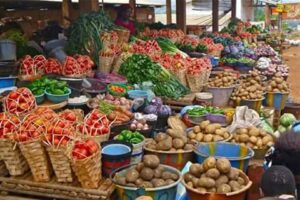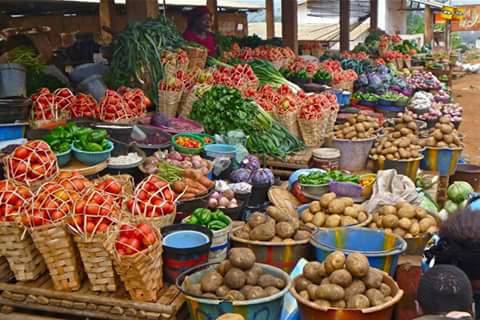The Cameroon Government has committed to assist 2.7 million Cameroonians hard-hit by food insecurity in the country. This information was disclosed, April 15, 2021, by the Minister of Agriculture and Rural Development, Mr Gabriel Mbairobe, while addressing the food security situation of those living in high risk zones in the country.

According to the Agriculture and Rural Development boss, the assistance will be donated to some 14 divisions in conflict-stricken regions of the country including the North West, South West and Far North, as well as IDPs in the Littoral, West and Centre Region. The Minister hinted that the Government will equally be adopting other strategies to bolster the fight against food insecurity plaguing the country. These strategies include, but not limited to, innovative agricultural practices, reinforcing agricultural adaptation to climate change, the settlement of young farmers, development of agric-food industries and more support for research.
The Mbairobe was particularly grateful to the Food and Agricultural Organization for the support they have offered to farmers to boost food and agricultural production in-country.
The Anglophone crisis that started in 2016 in the North West and South West regions of Cameroon and later morphed to ab arm conflict between government forces and separatist fighters, who wants to create an independent state called Ambazonia has forced thousands of farmers off their land. These farmers, who were credited for the supply of food stuff to major towns and cities in the country, and earning huge sums of money as a result, have been reduced to IDPs and refugees in safer parts of Cameroon and Nigeria respectively. The hitherto self-sufficient farmers and millionaires, as the case was, have been reduced to beggars, and are at the mercy of humanitarian organizations and well-wishers.
The rippling effect of this inadvertent farm desert is already being felt via the break-neck cost of food items in Cameroons towns and cities. A bunch of plantain hitherto sold in Douala at fcfa 1500 now sells at fcfa 2500. It is a similar situation with beans, maize, potatoes and vegetables amongst others. This has increased the standard of living, making live in the city very difficult for an average Cameroonian.
It is therefore hoped that this initiative to boost food security does not become another Government machinery that will “grind slowly but surely”, while Cameroonians, especially those in the conflict stricken regions, languish in hunger, poverty and continuous hardship.
Photo Credit: Food N Stuff
By Ndimuh B. Shancho







